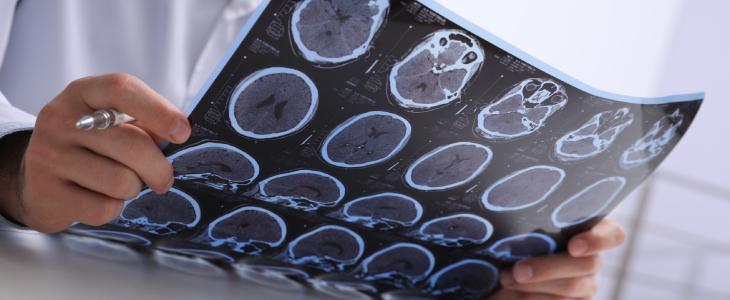We’ll Focus on the Fight
Brain Injuries

Brain injuries happen to millions of victims every year. Over fifty thousand brain injuries a year result in death while tens of thousands more result in disabilities that will affect the victim the rest of his or her life. Not surprisingly, most brain injuries occur in accidents with moving vehicles such as motorcycles and trucks as well as slip/trip and falls. However, brain injuries can also occur from sporting activities such as football or boxing or simply the hazards of everyday life; falling off your bike, slipping on ice, assault and battery, work injuries, etc.
According to the Centers for Disease Control and Prevention statistics, falls and motor vehicle crashes are the 1st and 2nd leading causes of all traumatic brain injury (TBI) hospitalizations 2.87 million TBI-related emergency department visits, hospitalizations, and deaths occurred in the United States in 2014. From 2006 to 2014 the number of TBI-related emergency department visits, hospitalizations, and deaths increased by 53% TBI from falling was the leading cause of death for persons 65 years of age or older. Motor vehicle crashes were the leading cause of death for persons 15-24, 25-34, and adults over 75 years.
What is a Brain Injury?
A brain injury is exactly what the name implies: Trauma to the head involving the brain. Traumatic Brain Injuries can happen via visible trauma to the head or what is commonly referred to as a “closed head injury.” A closed head injury often occurs in car accidents or in sports collisions when the head snaps back and forth causing the brain to impact the skull. While not visible, these injuries can be devastating.
Sometimes, tests such as CT Scans and MRI studies will show edema (swelling) or hematomas (bruising) in the brain as evidence of the existence of a closed head injury. In a significant amount of patients, however, those tests can be inconclusive and additional studies need to be performed by the appropriate specialist. Brain injuries also differ from patient to patient. Some have difficulty with memory and concentration. Others lose their ability to taste see, or smell. Some have difficulty controlling their emotions or with speech, ambulation, and coordination. The very unfortunate may experience all of the above.
Are There Treatment Options for a Brain Injury?
Occupational Therapy, Cognitive Rehabilitation, Speech Therapy, Psychological and Neuropsychological therapies are all treatment options depending on the particular symptoms of a brain injury patient. Brain injuries can be devastating to the victims as well as their families. Because of the seriousness of these injuries and resulting damages, a good brain injury lawyer will fight to win significant compensation for his clients.
How Can a Personal Attorney Help With a Brain Injury After an Accident?
An experienced personal injury lawyer has the resources to consult with economists and other financial experts to put an accurate price on your injuries. While it will never make up for your suffering, it can at least relieve the burden of having to pay out of pocket for expensive medical care. Traumatic brain injuries require an experienced attorney who understands the injury and how it will affect a person for the rest of their life. Because you only have one chance to get full compensation for an injury, the attorney needs to understand what type of care you will need, how your life was impacted, and how it will affect earnings potential and quality of life. This way, you can be sure that any settlement you accept will be enough for treatment that will last for the rest of your life.
Contact Our Farmington Hills Brain Injury Attorney for a FREE Consultation
If you have suffered a brain injury, closed head injury, or concussion as a result of the negligence of someone else, contact us. We can help during this difficult time and maximize your recovery.
Davis Law Center: your trusted partner for personal injury accident cases. Serving Detroit, Farmington Hills, Southfield, Macon County, Wayne County, Oakland County, and all of Michigan.









